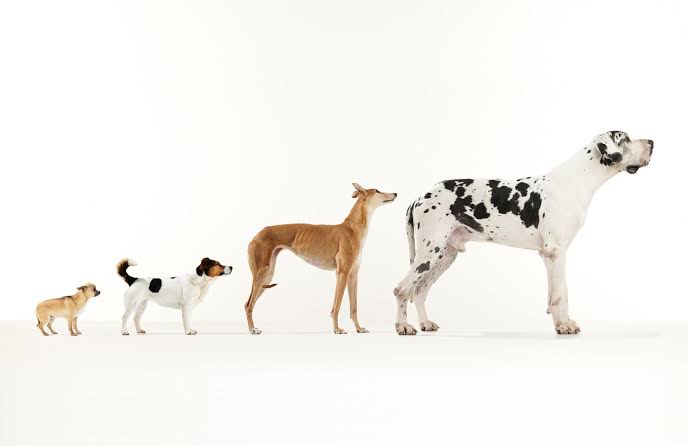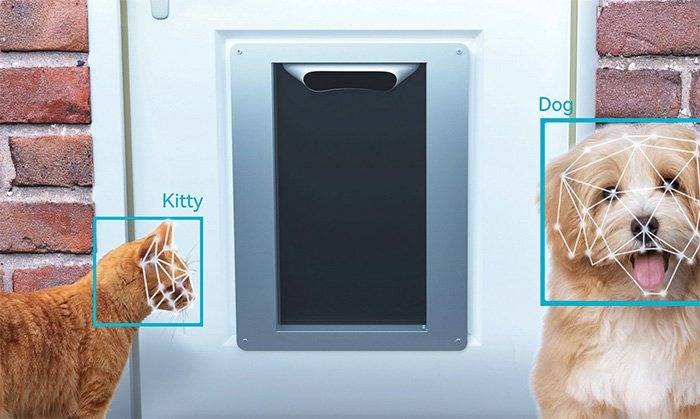
The History of Domesticated Dogs: From Wolves to Man’s Best Friend
The history of domesticated dogs is a fascinating journey that traces back thousands of years, from their origins as wild wolves to becoming humanity’s most loyal companions. This article explores the evolution of dogs, their roles in ancient societies, and how selective breeding shaped the diverse breeds we know today. Discover how dogs became an integral part of human life.
🐶 Pet Star
16 min read · 13, Feb 2025

The Origins of Domestication
The story of domesticated dogs begins with their ancestors: wolves. Scientists believe that the domestication of dogs occurred between 20,000 and 40,000 years ago, although the exact timeline remains debated. The process likely began when wolves started scavenging near human settlements, drawn by the promise of food scraps.
Mutual Benefits
- For Wolves: Access to an easy food source and protection from larger predators.
- For Humans: Early warning systems against threats, assistance in hunting, and companionship.
Over time, the friendliest and most adaptable wolves began to form closer bonds with humans. These wolves were less aggressive and more tolerant of human presence, traits that were naturally selected over generations.
The First Domesticated Dogs
The earliest evidence of domesticated dogs comes from archaeological findings, such as fossilized remains and ancient burial sites. One of the oldest known dog fossils, discovered in Germany, dates back approximately 14,000 years. These early dogs were smaller than wolves, with shorter snouts and more varied coat colors, indicating the beginning of selective breeding.
Roles in Ancient Societies
- Hunting Companions: Dogs assisted humans in tracking and capturing prey, making hunting more efficient.
- Guardians: Their keen senses made them excellent watchdogs, alerting humans to approaching danger.
- Spiritual Significance: In some cultures, dogs were revered as spiritual guides or symbols of loyalty and protection.
Dogs in Ancient Civilizations
As human societies evolved, so did the roles of dogs. They became integral to various ancient civilizations, each contributing to the development of different breeds and traits.
Ancient Egypt
Dogs were highly valued in ancient Egypt, often depicted in art and mythology. Breeds like the Saluki and Basenji were cherished as hunting companions and symbols of royalty. Dogs were also associated with Anubis, the god of the afterlife, and were sometimes mummified to accompany their owners in death.
Ancient Greece and Rome
In ancient Greece and Rome, dogs served as guardians, hunters, and even soldiers. The Molossus, an ancient breed, was used in warfare and as a protector of livestock. Dogs were also celebrated in literature and mythology, such as Odysseus’s loyal dog, Argos, in Homer’s Odyssey.
Ancient China
In China, dogs were bred for specific purposes, such as hunting, herding, and companionship. The Pekingese, for example, was a royal breed kept by Chinese emperors. Dogs were also believed to have protective powers and were often depicted in art and folklore.
The Middle Ages and Beyond
During the Middle Ages, dogs continued to play vital roles in human societies. They were used for hunting, herding, and protection, and their breeds became more specialized.
Working Dogs
- Herding Dogs: Breeds like the Border Collie and Shetland Sheepdog were developed to manage livestock.
- Guard Dogs: Large, powerful breeds like the Mastiff and Great Dane were used to protect property and people.
- Hunting Dogs: Breeds like the Beagle and Pointer were bred for their keen sense of smell and agility.
Companionship
As societies became more affluent, dogs began to be kept as companions rather than just workers. Small breeds like the Maltese and Pomeranian became popular among nobility and royalty.
The Rise of Modern Dog Breeds
The 19th and 20th centuries saw the formalization of dog breeding, leading to the creation of the diverse breeds we know today. Kennel clubs, such as the American Kennel Club (AKC) and the United Kennel Club (UKC), were established to standardize breeds and promote responsible breeding practices.
Selective Breeding
Selective breeding allowed humans to emphasize specific traits, such as size, coat type, and temperament. This led to the development of breeds tailored for various roles, including:
- Sporting Dogs: Retrievers, Spaniels, and Setters for hunting.
- Working Dogs: German Shepherds, Boxers, and Rottweilers for protection and service.
- Toy Breeds: Chihuahuas, Pugs, and Shih Tzus for companionship.
Dogs in the Modern World
Today, dogs are more than just pets; they are family members, service animals, and cultural icons. Their roles have expanded to include:
- Service and Therapy Dogs: Assisting individuals with disabilities or providing emotional support.
- Search and Rescue: Helping locate missing persons or survivors in disaster zones.
- Entertainment and Media: Starring in movies, TV shows, and social media, capturing the hearts of millions.
The Science of Domestication
Modern genetic research has shed light on the domestication process. Studies comparing the DNA of dogs and wolves reveal that dogs have undergone significant genetic changes, particularly in genes related to behavior, digestion, and appearance. These changes reflect their adaptation to living alongside humans.
Key Genetic Changes
- Behavior: Genes associated with reduced aggression and increased sociability.
- Digestion: Enhanced ability to digest starches, reflecting their adaptation to a human diet.
- Appearance: Variations in coat color, size, and facial features due to selective breeding.
The Future of Dogs
As our understanding of genetics and animal behavior advances, the relationship between humans and dogs continues to evolve. Innovations like genetic testing and personalized nutrition are helping us care for our canine companions better than ever before. However, challenges such as overbreeding and breed-specific health issues remain, highlighting the need for responsible ownership and breeding practices.
Q1: How did dogs evolve from wolves?
Ans) Dogs evolved from wolves through a process of natural selection and domestication. Friendlier, less aggressive wolves that scavenged near human settlements gradually formed closer bonds with humans, leading to the development of early domesticated dogs.
Q2: What roles did dogs play in ancient civilizations?
Ans) Dogs served as hunters, guardians, and spiritual symbols in ancient civilizations. They were also valued as companions and were often depicted in art and mythology.
Q3: How did selective breeding shape modern dog breeds?
Ans) Selective breeding emphasized specific traits like size, coat type, and temperament, leading to the creation of breeds tailored for various roles, such as hunting, herding, and companionship.
Q4: What are some genetic changes that occurred during domestication?
Ans) Genetic changes during domestication include reduced aggression, increased sociability, enhanced starch digestion, and variations in coat color and size.
Q5: What challenges do modern dogs face?
Ans) Modern dogs face challenges like overbreeding, breed-specific health issues, and the need for responsible ownership. Advances in genetics and nutrition are helping address these issues.
Similar Articles
Find more relatable content in similar Articles

Sustainable Pet Products: What to Look for in 2025...
As sustainability becomes a ce.. Read More

Smart Homes for Pets: Automated Feeders, Doors, and Mo..
As smart home technology advan.. Read More

How Climate Change Affects Wild and Domestic Animals...
Climate change is dramatically.. Read More

How Pets Strengthen Family Bonds...
Pets are more than just compan.. Read More
Explore Other Categories
© 2024 Copyrights by rPets. All Rights Reserved.